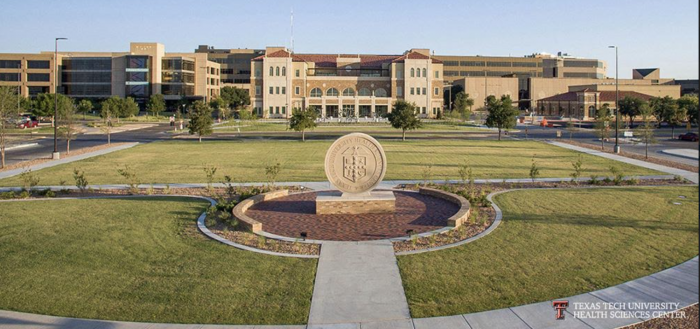How the VA Supports Veterans with Lung Disease Affected by COVID-19

Jen Verta is a writer and editor that can seamlessly blend her content in with a multitude of verticals, especially the health and medical sector. Writing in this field is a large area of focus for Jen because she relishes taking complicated topics and turning them into simpler bits of info the reader can handle. Health is life!
The impact of severe diseases like lung cancer is compounded for veterans from the global spread of novel coronavirus (COVID-19). Veterans with lung disease or high risk of tumor development should understand their health options and best practices for minimizing exposure to COVID-19. As of April 2021, coronavirus has caused approximately 563,216 deaths in the United States, according to data from the Centers for Disease Control and Prevention (CDC).
How Veterans with Lung Disease Are Impacted by COVID-19
Respiratory diseases greatly impact veterans all over the United States, with lung cancer as the leading cause of cancer-related mortalities in the United States altogether (followed by colorectal cancer). Research shows that incidence of lung cancer is higher while survival is lower among veterans compared to civilians and has been for decades. Veteran’s prolonged exposure to carcinogens like asbestos, radon, smoke, and smog, (among others), are some of the main causes of latent lung disease in veterans.
Research from the U.S. Department of Veterans Affairs (VA) suggests that exposure to these cancer-causing agents can happen during military service in environmental hazards during combat like damaged infrastructures, burn pits, sandstorms, Agent Orange, or fumes from military craft.
Why Coronavirus is Especially Dangerous for Veterans with Lung Cancer
Since coronavirus attacks the respiratory system, when lungs and immune system are already weakened by pre-existing illness, there’s a greater chance for complications like lung failure and death since the body is too weak to fight off disease. Additionally, the body is more susceptible to infections. Related complications cause the patient to need access to a ventilator for breathing, hospitalization, or intensive care.
Besides lung cancer, veterans with the following respiratory illnesses are at higher risk for severe symptoms from COVID-19:
- Chronic obstructive pulmonary diseases (COPD) – COPD is a category of respiratory diseases that reduce airflow. Examples include severe asthma, bronchitis, and emphysema.
- Cystic fibrosis – A disease that can be inherited through genetics, cystic fibrosis is when excess mucus in the lungs gets too thick and causes blockage and lung damage.
- Pulmonary hypertension – When the pressure in the heart’s blood vessels leading to the lungs gets too high. This can happen when excess muscle formulates on the blood vessel wall.
Veterans or civilians who smoke cigarettes or have in the past should also exercise precaution in public. The CDC recommends current smokers consider alternatives like chewing gum or patches to help curb the urge and eventually quit smoking.
Safety Tips Regarding Coronavirus
Veterans and others can stay safe amidst a pandemic if they adhere to certain restrictions and mandates. The CDC recommends the following actions:
- Clean and disinfect living areas
- Cover face, coughs, and sneezes
- Maintain a 6 feet distance
- Stay away from crowds and public spaces
- Wash hands regularly
- Wear a mask
- Get vaccinated


The impact of severe diseases like lung cancer is compounded for veterans from the global spread of novel coronavirus (COVID-19).
JEN VERTA
Get Screened
High-risk individuals can visit their doctor or physician to receive an early screening for lung cancer. This process takes place before any symptoms arise and can be an effective tactic to detect illness as early as possible. This is important since anti-cancer treatments are most effective at the earlier stages of lung cancer, especially in veterans who may suspect they were exposed to air toxins.
Government Aid for Veterans
The U.S. Department of Veterans Affairs provides financial and health benefits and support to veterans who obtained injury or illness during their time of service. The burden of proof does fall on the veteran, however, which means they have to produce evidence and make arguments on their own behalf regarding their injury. If you need someone to speak on your behalf, we can help. Reach out to one of our experienced attorneys who can manage your claim, so you can focus on treatment and beyond.
Immediate family can also apply for benefits on behalf of the veteran. In the event the patient passes away from late-stage lung cancer, their spouse or family member can file a wrongful death claim. Compensation from this type of litigation is meant to compensate the family for the loss of income and wages.
VA Benefits
Eligible veterans can apply for compensation from the VA. Compensation can cover a range of needs, including:
- Early screening and assistance
- Disability
- Geriatric care
- Health assessments and educations
- Home telehealth assistance
- Immunizations and Vaccines
- Medical aid and care
- Respite assistance
- Transportation
- VA living Communities
Reach out to your local VA for more information regarding benefits and compensation for veterans. They’ll be able to assess your situation and give insight on options, eligibility, and coverage.
Vaccine
The CDC and VA are collaborating on best practices for ensuring veterans get COVID-19 as efficiently as possible. If you’re a veteran interested in signing up for a coronavirus vaccine, sign up at the official VA website.
Healthcare
At the VA website or local branch, veterans and their loved ones can access a multitude of information and resources regarding their healthcare options. They can find support in:
- Cancer and Other Illnesses Caused by Hazardous Substances
- Mental Health
- Nutrition and Food Services
- PTSD
- Suicide Prevention
- Women’s Health Care Needs
If you’re a veteran and think you’ve been exposed to any toxic materials, get an early screening, the earlier tumors are discovered, the easier they are to treat. Veterans interested in claiming benefits must provide the following information:
- Doctor statement demonstrating the correlation between illness and asbestos (or other carcinogen) exposure
- Medical records that substantiate exposure and illness
- Service records that demonstrate job specifics
Certain occupations have a higher risk of dangerous exposure to air toxins as well as other poisonous substances. Occupations at risk include those in the following industries:
- Automobile
- Carpentry
- Chemical processing
- Construction and demolition
- Insulation and related products
- Maritime, shipyards, seamen
- Mining and milling
- Plumbing and pipefitting
Veterans in these occupations may have been exposed to asbestos or other toxins while on the job. Visit your local VA hospital
Local Support
Veterans who need support from the VA can contact their local branch and pinpoint the nearest Veterans Benefits Administration’s office for related services. If they need to visit a VA hospital, their website has a helpful directory of local facilities available.
Sources:
Centers for Disease Control and Prevention. (2021). People with Certain Medical Conditions. Retrieved on April 14th, 2021.
VA Blog. (2020). Coping with COVID-19: Help for Veterans with Lung Disease. Retrieved on April 14th, 2021.
US Department of Veterans Affairs. VA Research on Respiratory Health. Retrieved on April 14th, 2021.
Want new articles before they get published? Subscribe to our Awesome Newsletter.

CAREER ADVICE

GOV TALK




